16 Unique Raised Garden Bed Ideas For Every Landscaping Need
Discover creative ideas for raised garden beds that are practical and beautiful. These clever solutions are perfect for growing vegetables, flowers, and more.
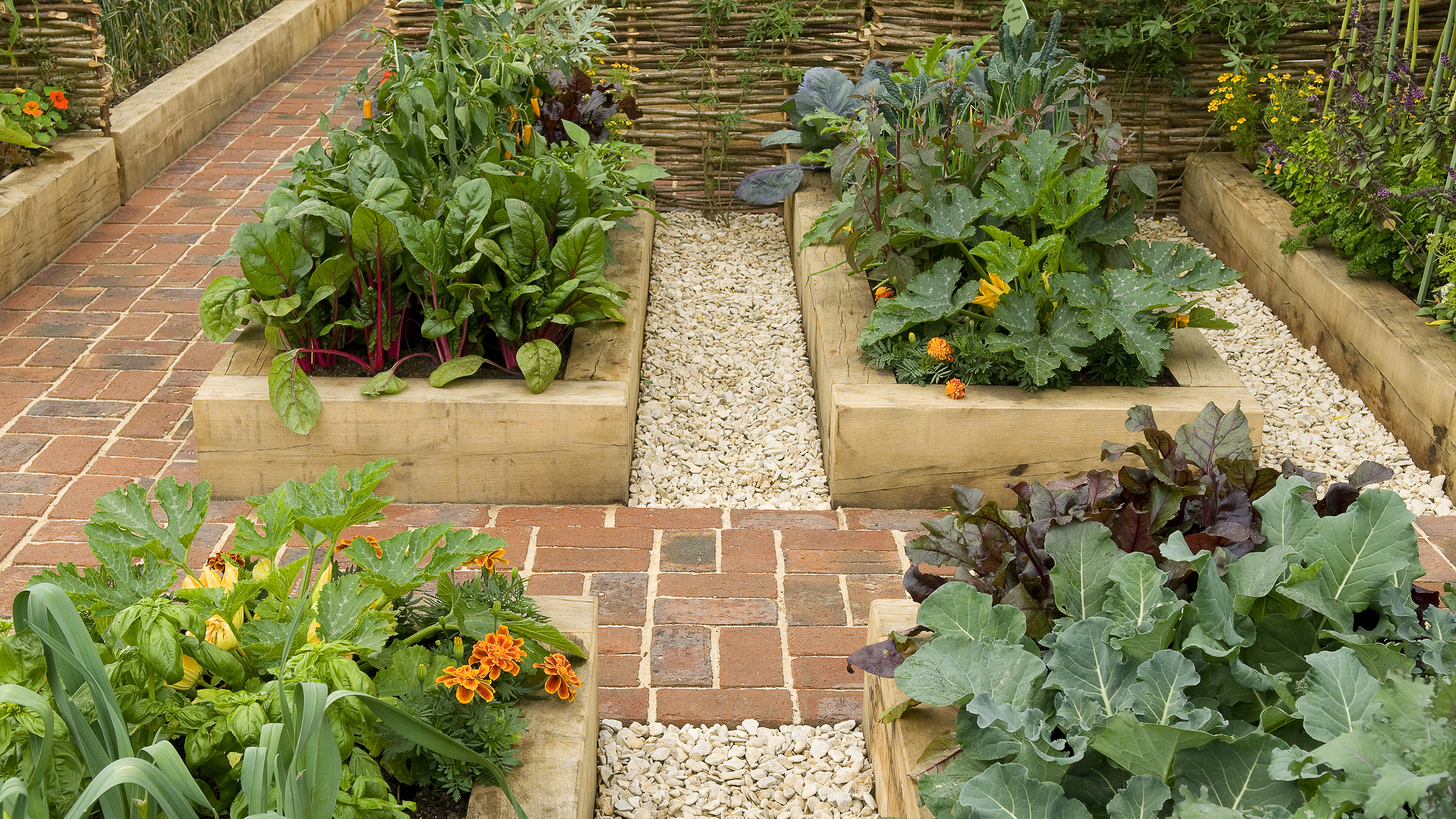
Sign up for the Gardening Know How newsletter today and receive a free copy of our e-book "How to Grow Delicious Tomatoes".
You are now subscribed
Your newsletter sign-up was successful
With so many raised garden bed ideas to choose from, they offer a fabulous opportunity to get creative and design a unique landscaping feature.
There are numerous advantages of raised garden beds, not the least of which are a reduction in soil compaction, weed suppression, better drainage, and earlier soil warming – which can make for an earlier crop when growing a raised vegetable garden.
Raised beds allow us to choose the soil mixture we want, which is especially helpful in areas where the ground’s soil may be substandard for gardening. The best soil for raised garden beds depends on what you want to grow, but a good start is a mix of garden soil and compost.
Raised garden bed drainage is an important factor, so adding vermiculite to the soil will keep it well drained, while the structure itself will need to allow for the release of excess moisture.
The easiest raised garden bed ideas are made from simple wooden kits. However, these and other materials can be used for a more creative DIY design. Take inspiration from our roundup of unique ideas.
1. Invest In A Flexible Rolling Raised Bed
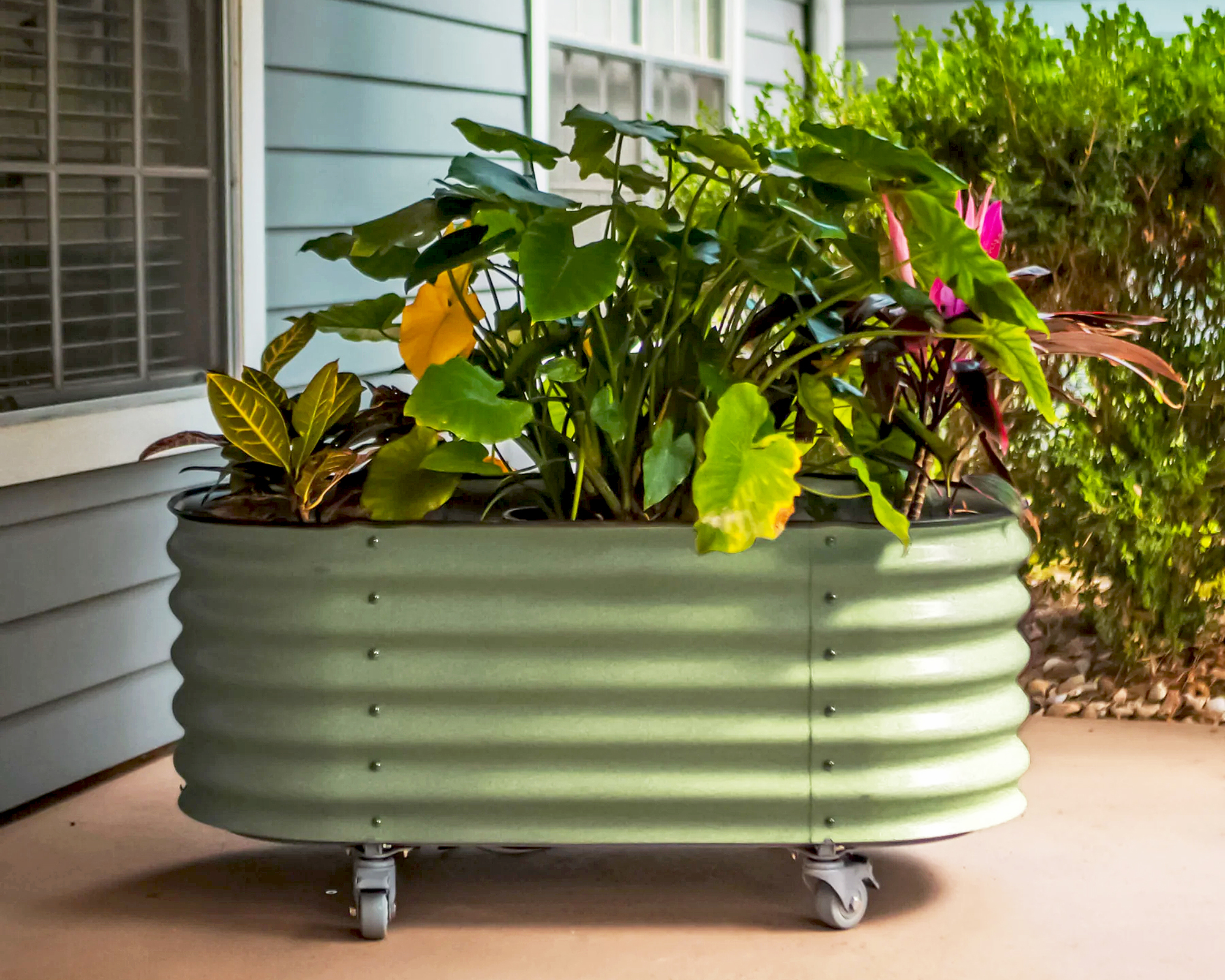
Give your raised bed the ability to move. Affix wheels to a raised bed and you now have the ability to move it in or out of sun, closer to the compost area for off-season cleaning, or into the greenhouse or garage for overwintering.
A rolling raised bed is perfect for small raised bed gardening. However, you will need a smooth surface such as concrete. Also, consider adding some safety options like locking wheels or padding around the corners, especially if you have little ones roaming the garden.
Sign up for the Gardening Know How newsletter today and receive a free copy of our e-book "How to Grow Delicious Tomatoes".
Installing casters on raised beds makes it easier to reposition them when seasons change. You may discover your bed isn’t close enough to a water source, or has become shaded. With wheels, you have some flexibility.
2. Use Elegant Metal Beds For A Formal Landscaping Design
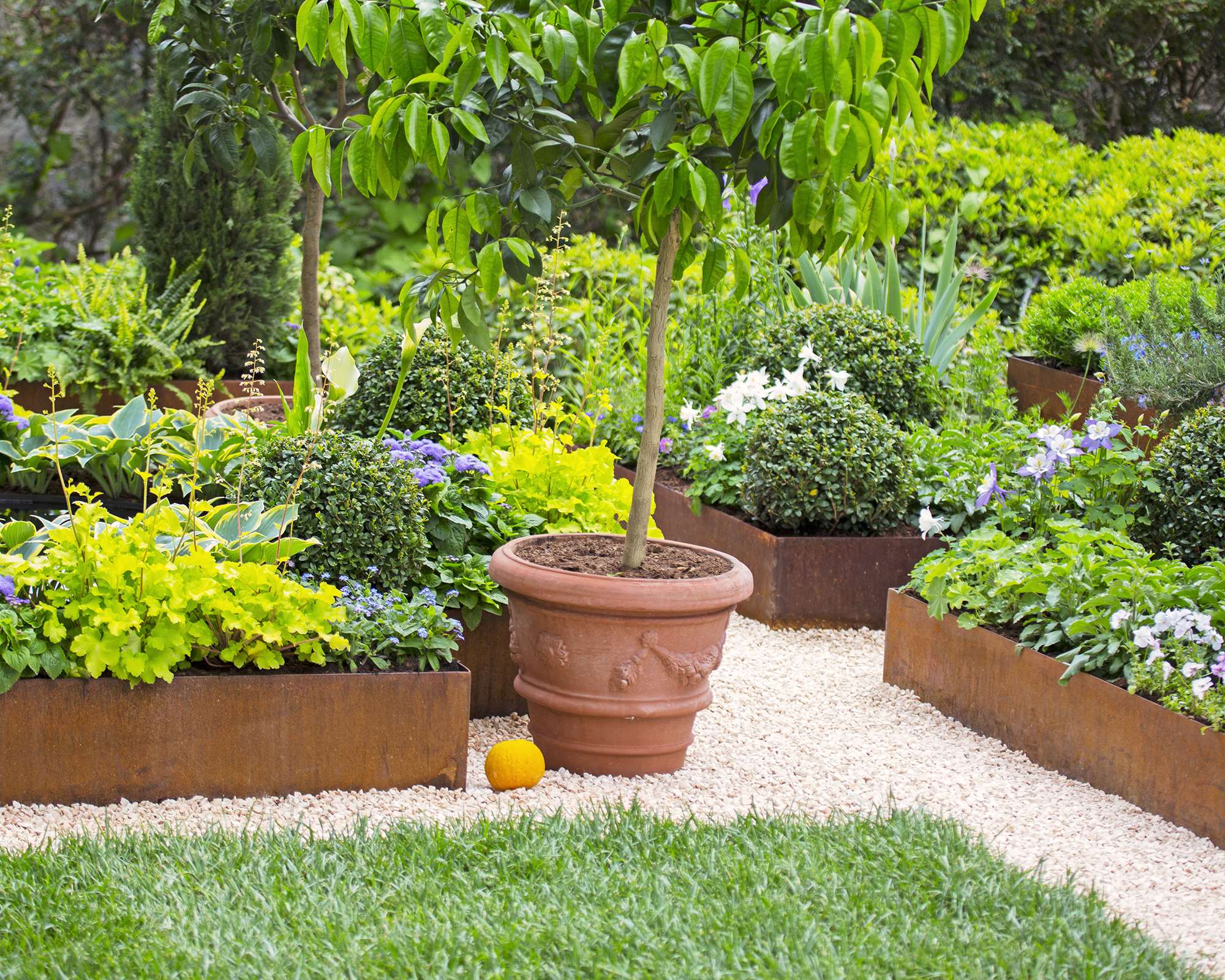
Raised beds don’t have to be strictly utilitarian – they can be beautiful as well. A formal raised bed should include shrubs, perennials and annuals of varying heights and seasonal interest.
Annuals can be planted densely so they fill in their area quickly, while perennials will often grow larger year after year. These larger perennials can be pruned to contain their size or divided in successive years.
The entirety of the raised bed can consist of only flowering plants which can be laid out in a pattern for added visual interest. For a clean cohesive look, keep the material of the actual bed as natural or neutral in color as possible. A bronzed metal finish adds a rich, warm feel to the design.
3. Convert Raised Beds Into Cold Frames
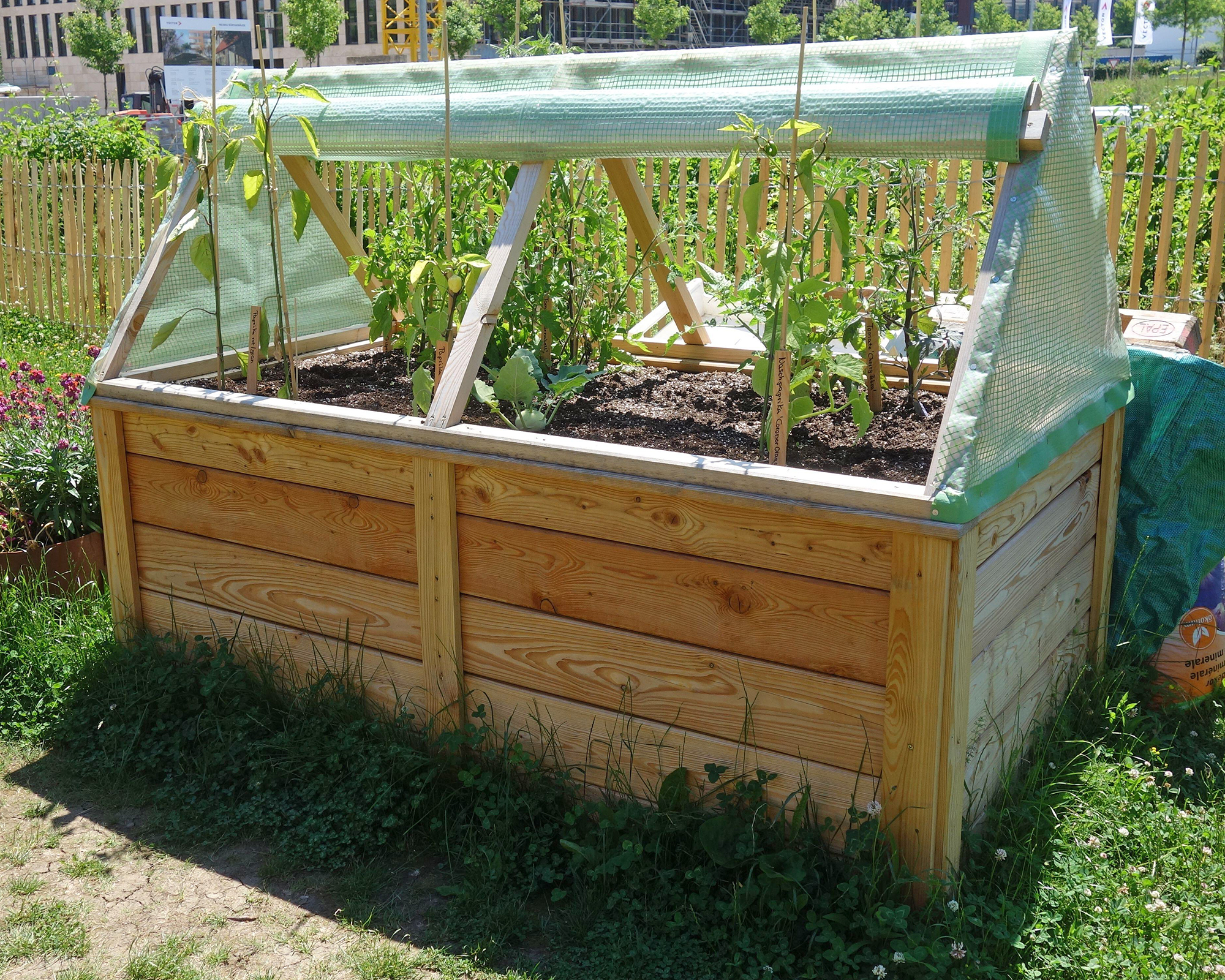
A cold frame can allow you to plant earlier in the spring and extend the garden season in the fall/early winter.
You can easily convert raised beds into a cold frame by adding a transparent covering over the top of it. The cover might be made of plastic or acrylic sheeting, old windows, or moveable caterpillar tunnels.
The simplest cold frame can be just a wooden frame built on a slant to catch the sun, and covered with an old hinged window that can be easily raised up for tending your seedlings.
Turn your existing raised bed into an incubator for seeds and seedlings by covering it, or a portion of it, with clear plastic. Use your imagination.
4. Stack Raised Beds To Save Your Back
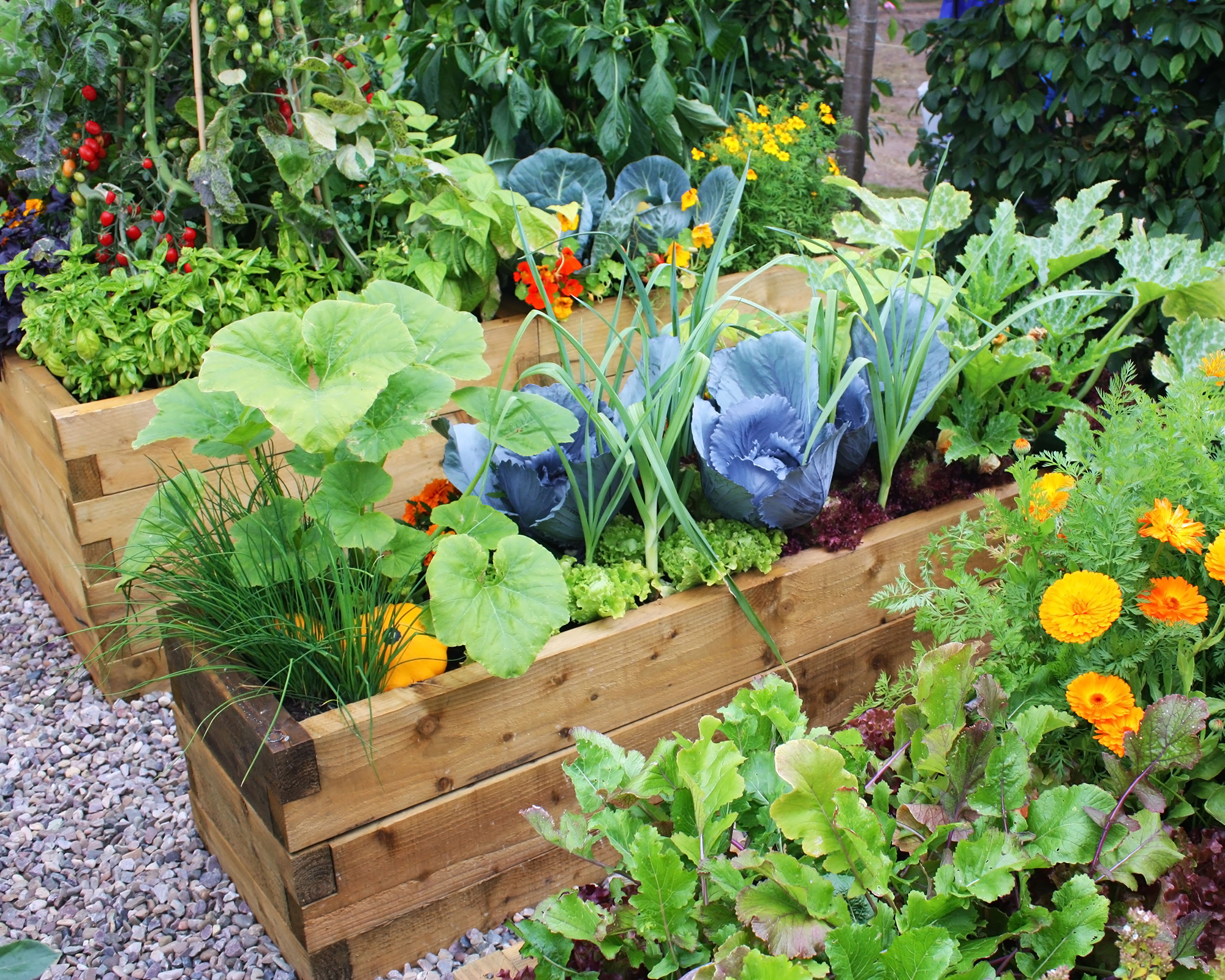
Raised beds can be as low as 24 inches (61cm) but if you want to save your back or grow crops with deeper root systems, stack your raised beds.
Some kits are designed specifically to be stacked and joined together with hardware. Other options are to simply stack square or rectangle raised bed sides atop each other and fill with soil. To be clear about this, we are simply referring to a raised bed frame that’s stacked high enough to give the bed height.
To make this a safer, more sturdy option, pound a length of rebar into the ground at each of the four corners. You might also create a tiered garden of your own design with varying heights for each planter. Again, you may want to fill it halfway with organic materials before adding soil and compost.
5. Maximize Space With Modular Metal Raised Garden Beds
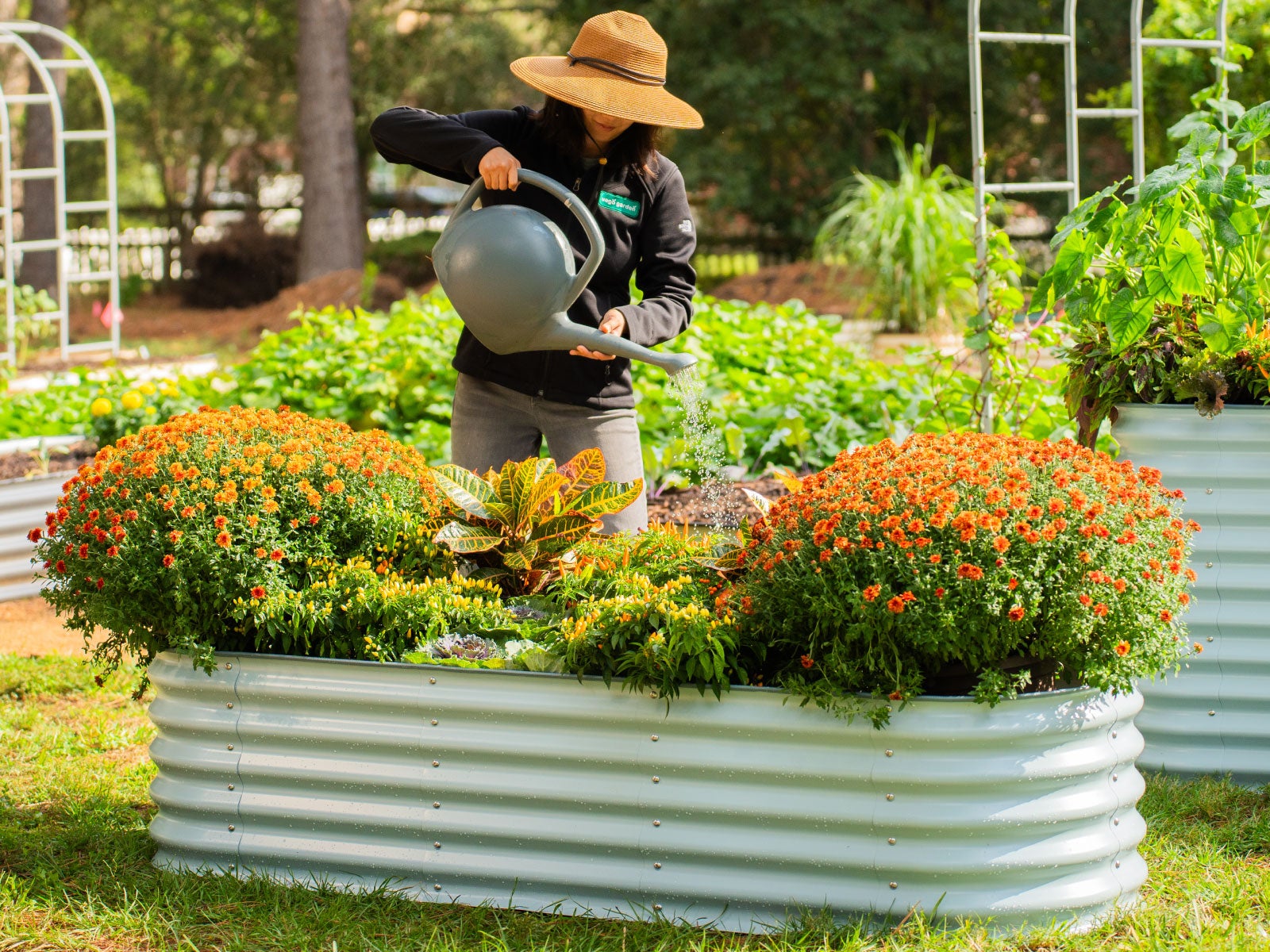
Metal garden beds were often made from round or oval feeding and watering troughs, typically used by farmers. From that brilliant idea came today’s metal modular raised beds that are the perfect solution to mediocre soil situations, changing environments, and convenience.
These raised bed modules can be mixed and matched, and can even be formed as L-shaped beds, allowing you to maximize your garden space.
Our favorites come from Vego Garden. The brand's metal beds come in different shapes, heights, sizes, and colors and all materials used in building them are organic and non-toxic.
Vego beds are guaranteed to last for 20 years or longer, unlike the typical wooden framed beds that have a limited life span.
Modular metal beds can be half-filled with organic materials before you load the soil in, making them rich, cost-efficient, and easy to work in.
6. Light Up Raised Beds for Night Gardening
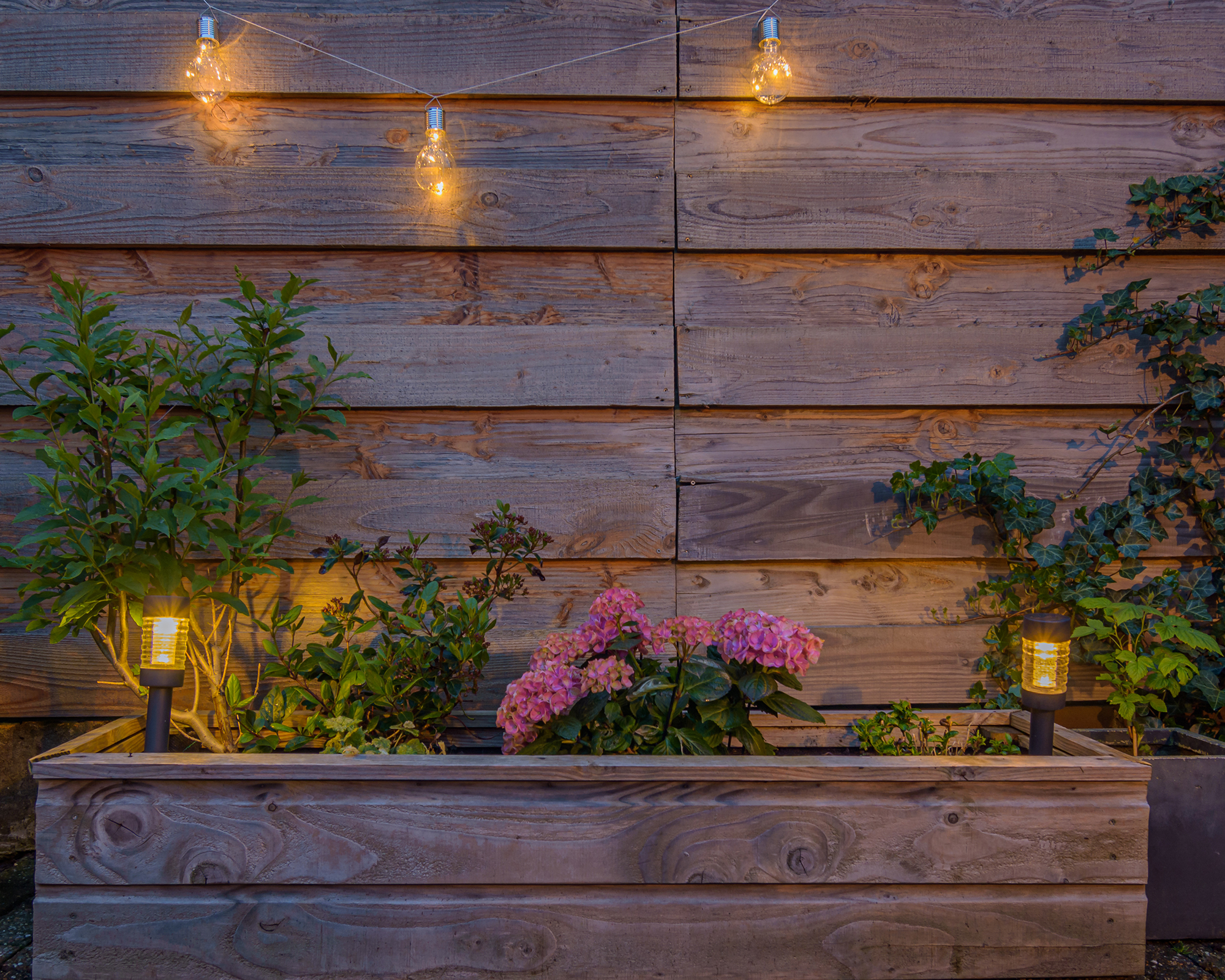
Shed some light on the subject by adding lighting to raised beds. Lighting is terrific in all aspects of the landscape but is especially useful around a raised bed. Now you can catch the culprit who’s digging up or nibbling on your crops and you can see to harvest at night.
If you are handy with electrical, install electrical conduits. If not, there are plenty of solar or battery-powered options.
Don’t disrupt your plants’ growth cycle by using bright or intense lighting. Soft solar lights are best. There is such a thing as “light pollution,” especially in urban areas, so leaving bright lights on all night is probably not Mother Nature’s favorite. It can throw migrating creatures off track, not to mention the tons of CO₂ that’s released as a result of excessive nighttime lighting.
7. Build a Self-Composting Keyhole Bed
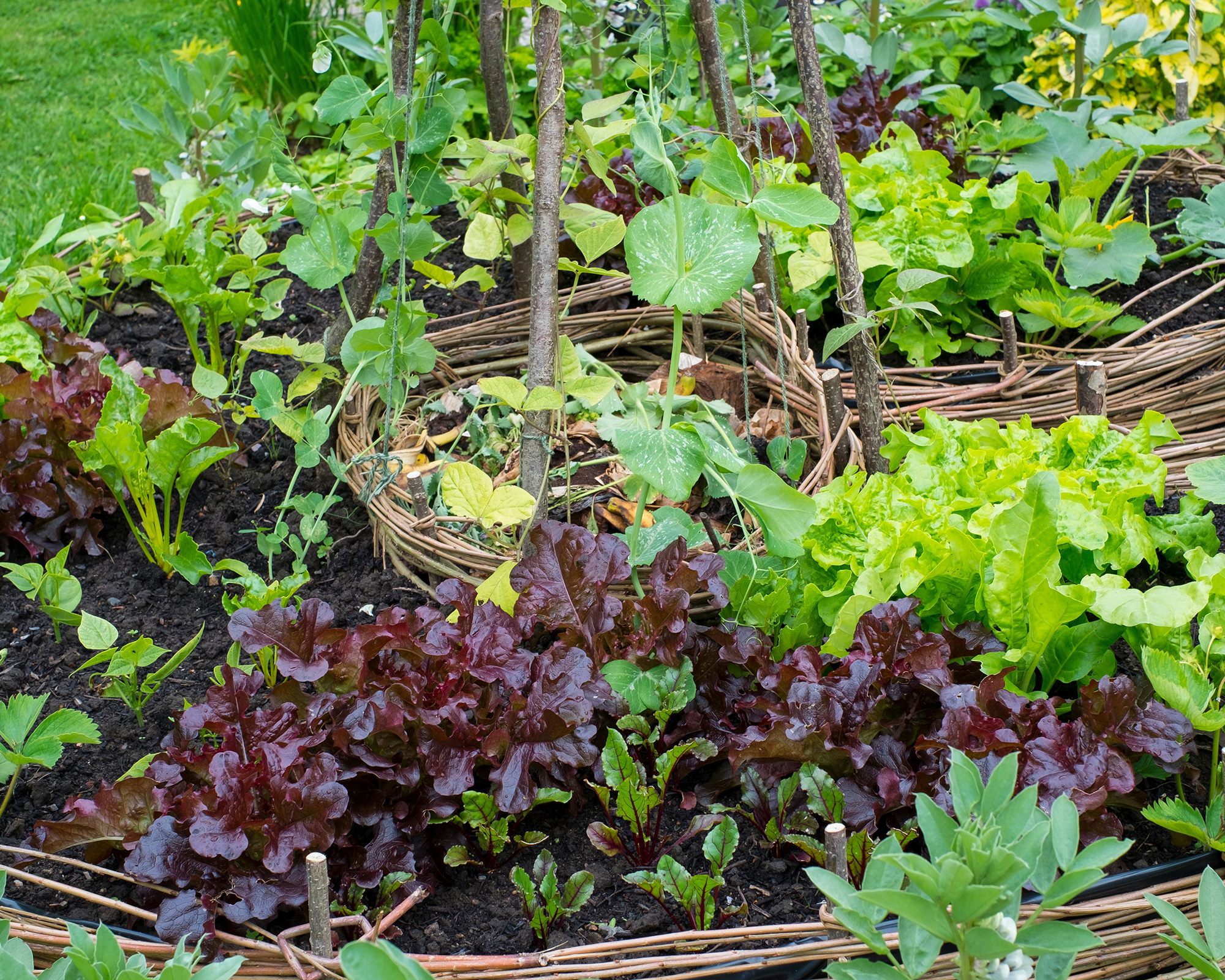
Keyhole raised beds are a clever solution for dry climates and areas of low-fertile soil. They are constructed in a circular fashion, but contain a cutout section – giving a keyhole shape to the design. This cutout allows access to the center of the raised bed, which contains a composting cage.
As you cook and garden, you fill the composting cage with food scraps and yard trimmings, which slowly starts to break down. You then water the beds through the composting area, so that the water is infused with all the nutrients in the compost, which is then absorbed into the soil.
The beds are usually raised quite high, to enable water retention and allow for a good amount of compost. This also makes them ideal for growing plants with long roots, although most plants are compatible.
8. Create a Sustainable Hugelkultur Bed
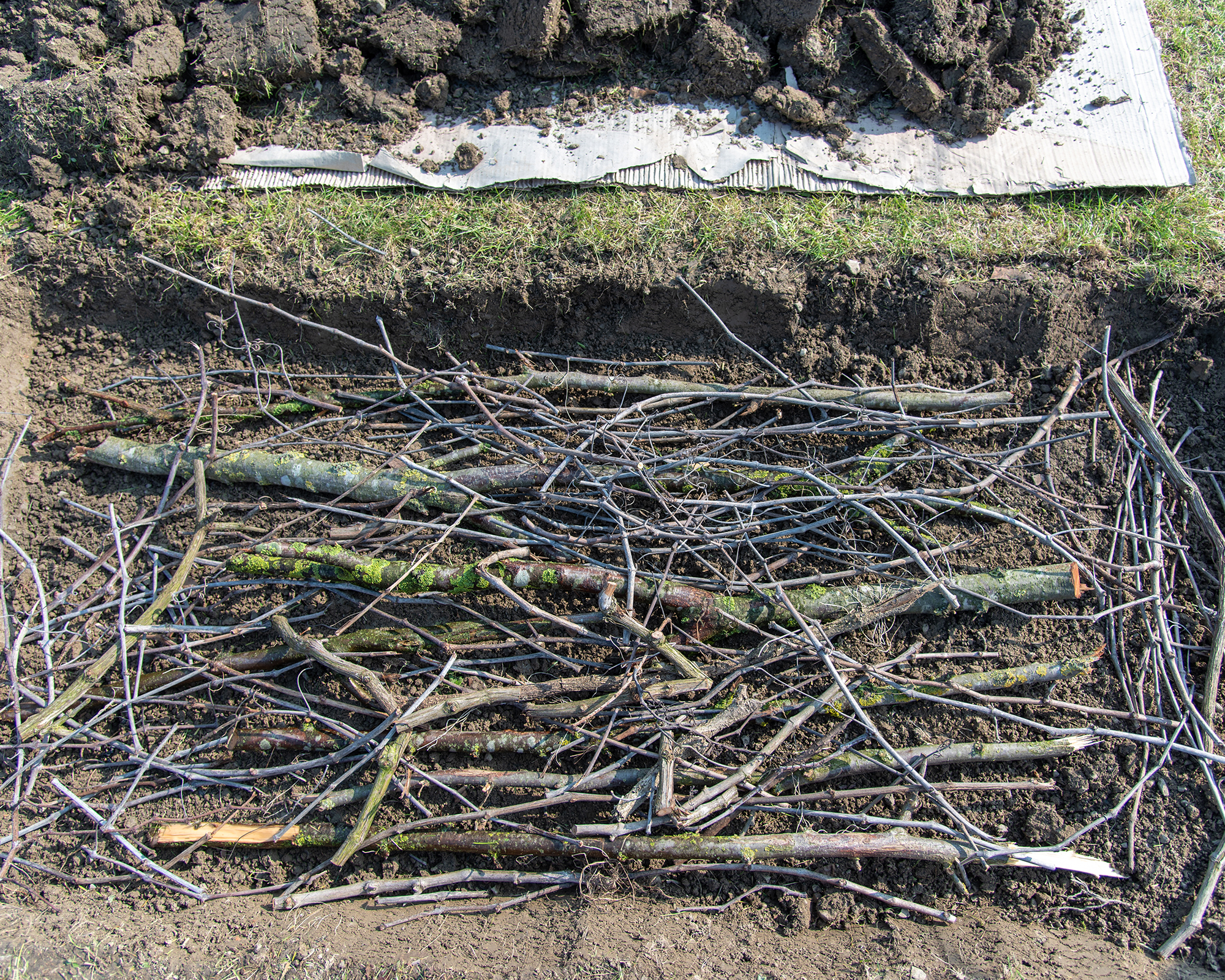
Hugelkultur is a centuries-old Eastern European system for building the ultimate raised bed out of rotting logs and plant debris. Those with wooded acreage or trees that have come down due to storms already have the materials.
This simple method has several variations but the general theme is to create raised beds out of mounds of logs and branches, filled with compost, soil, and other organic material. This is as sustainable as you get.
Hugelkultur requires little in materials. Simply mark out the area where you want a raised bed – the shape can be wavy or meandering, but does not need to be geometric. Then, rototill or dig the soil within the area until it is broken up and aerated.
Remove about a foot of soil, then begin filling the area with layers of logs and branches, wood chips, smaller branches (preferably rotting), leaves, yard clippings, dug-up turf, manure, straw, and leaves. Water deeply.
Cover it all with a few inches of compost and soil, which creates a raised “berm” of sorts that will yield surprising results once it is settled and planted.
The downside to a raised bed without a frame is erosion, but the upside is its low cost, simplicity, and sustainability.
9. Build A Simple Cinder Block Bed
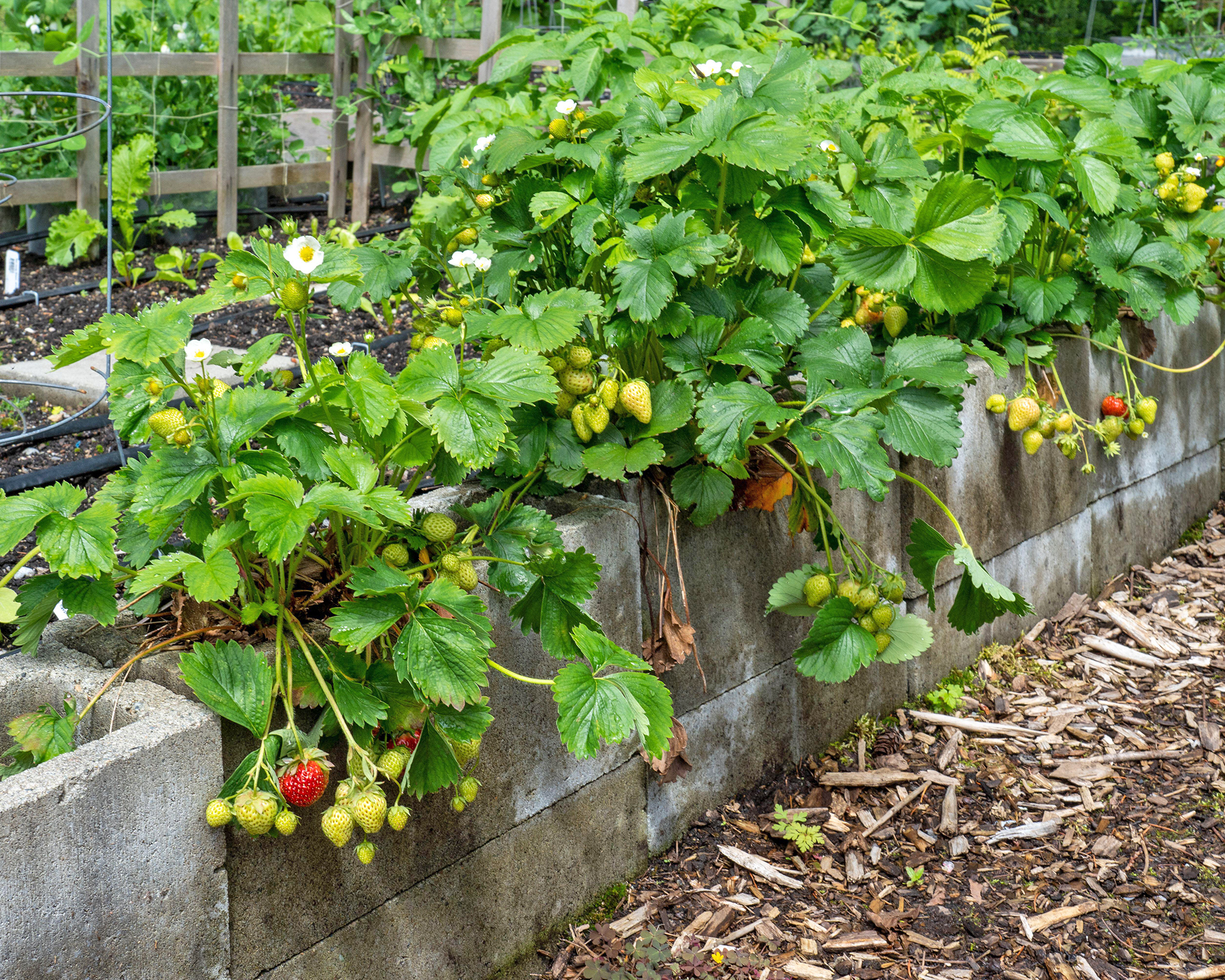
A really simple and low-cost option is to build a cinder block raised bed. For little money, these are easy to obtain from big box stores that cater to home improvement enthusiasts.
Cinder blocks are very sturdy and will outlast other materials. You will want to use some rebar to stabilize your raised bed and stack successive levels so the blocks are off-center. Also, place the blocks at the top of your structure so the holes are facing up, creating an additional planting space at the perimeter of your raised bed.
If you have a concern about the safety of cinder block material, be aware that long ago they were made with toxic materials, but that is no longer the case. They are perfectly safe for your raised bed.
10. Maximize Productivity In A Square Foot Vegetable Garden
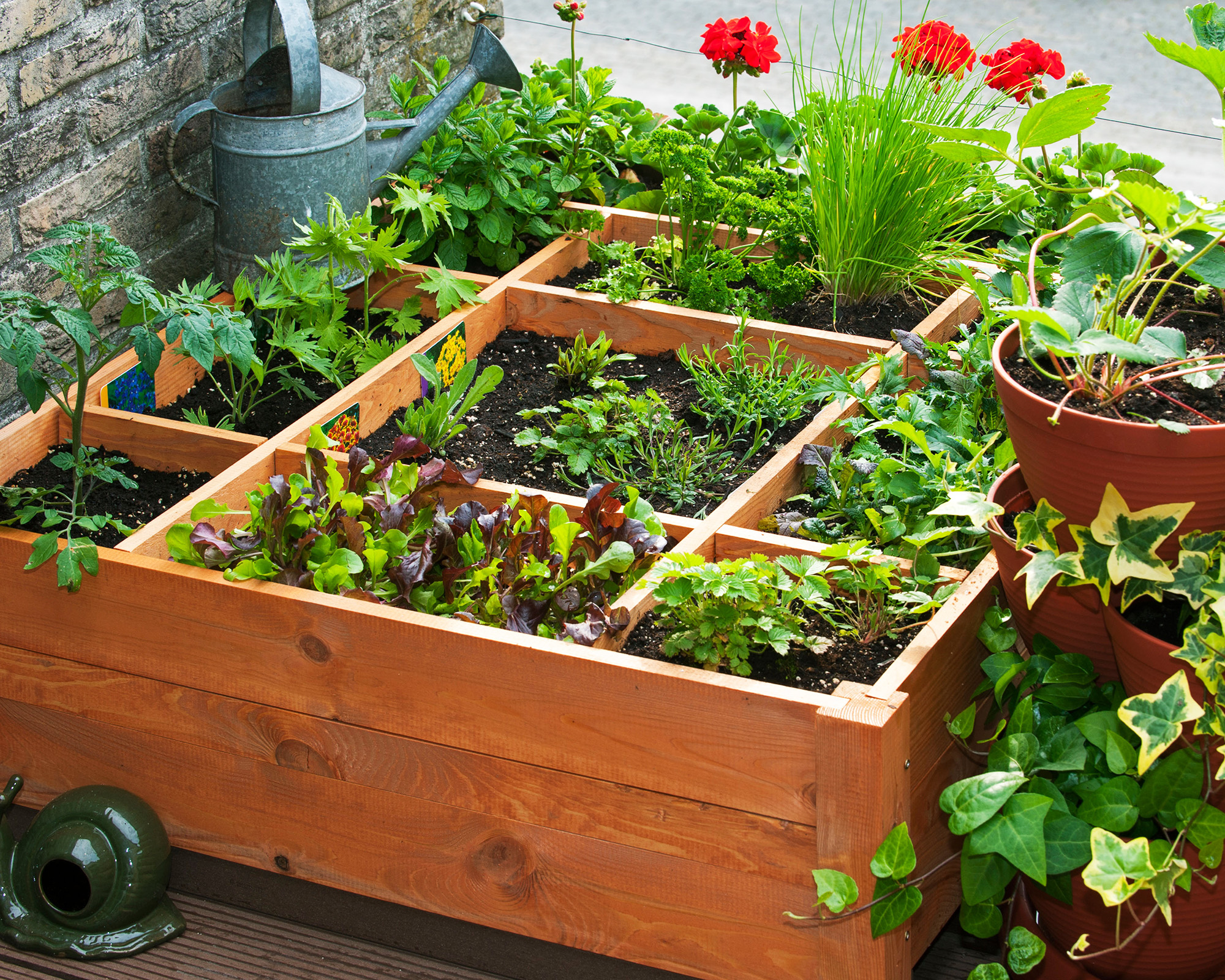
Square-foot gardening is the ideal solution for small growing spaces. The concept, developed in the 1980s, is intended to maximize efficiency and crop yields by dividing the growing area into small squares. These are usually 1ft (30cm) sections – hence the name – which each accommodate an individual crop.
Each growing square will contain 1, 4, 9, or 16 plants inside, depending on the crop. For example, tomato, pepper, and zucchini plants would each require one square, while you could grow more smaller crops in one square, such as 6 lettuces, 9 beets, or 16 radishes. Larger plants, such as squash or melon, will require two grids.
In order to maximize your growing space, you should practice succession planting – growing cool-season crops in spring, followed by warm-season crops in late spring and summer.
11. Incorporate Seating Into Your Raised Bed
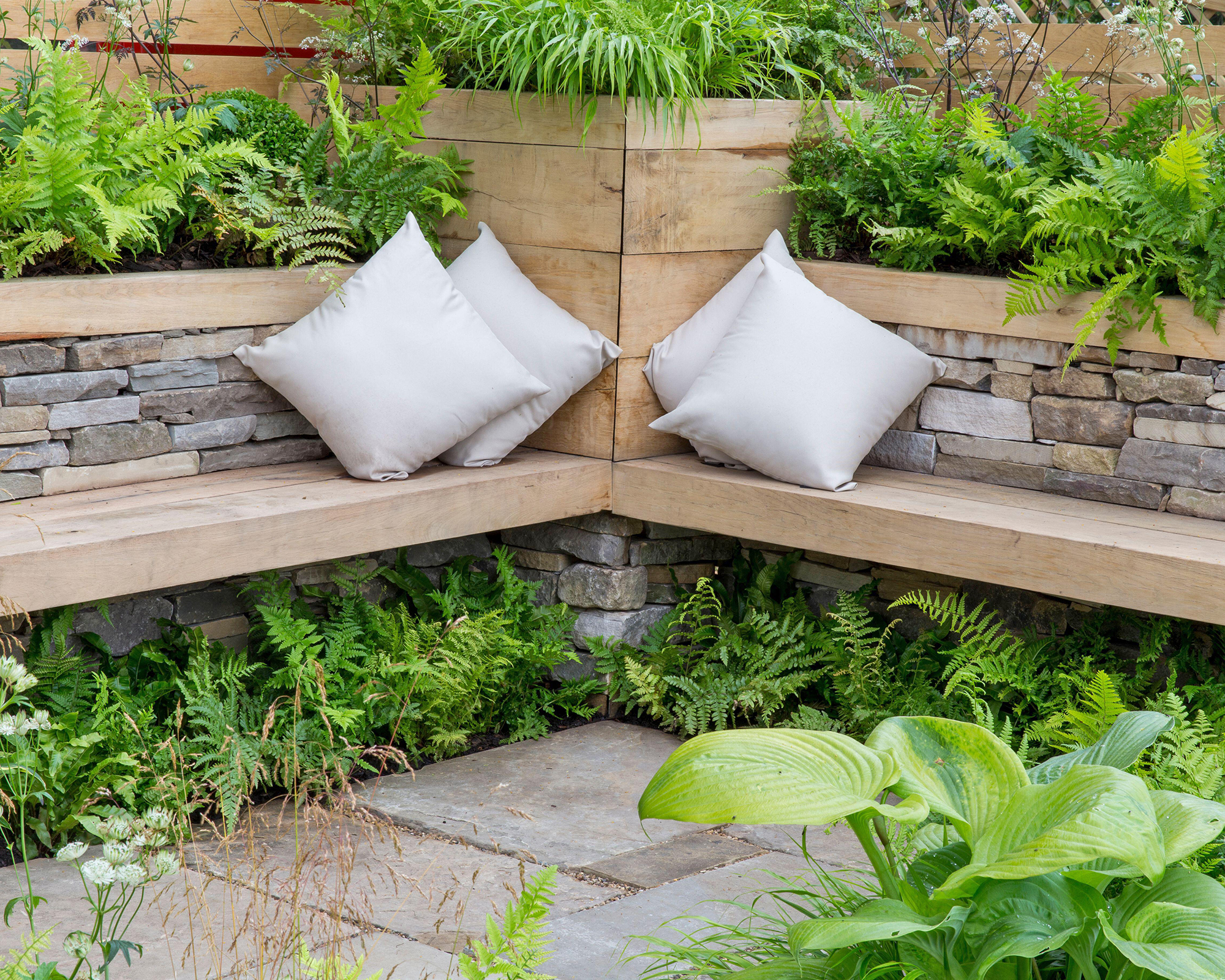
Building a bench seat into a raised bed is a brilliant way to maximize every inch of yard space while providing a spot to sit when tending to plants.
A seat can be added into a custom timber bed, or built with brick or stones. It's also possible to purchase kits with a bench incorporated into the design.
Ensure the height is just right for relaxing with your feet on the ground. It's a good idea to have a bit of back support on your bench to aid comfort and ensure you don't sit back on the soil.
12. Get Creative With Recycling
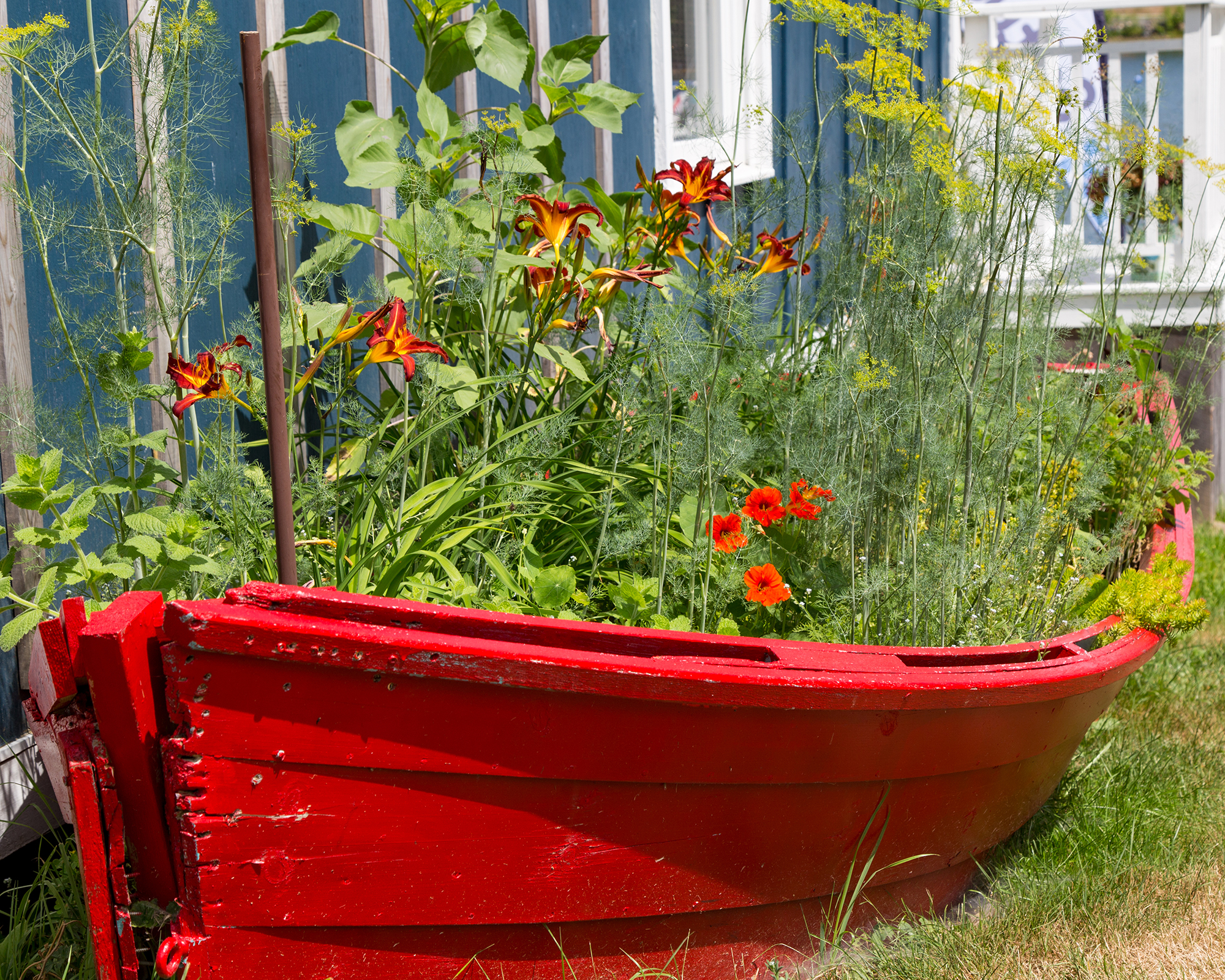
With a bit of imagination, almost any vessel can become a recycled raised garden bed. As long as it can hold enough soil for root growth, and does not contain toxic materials, a recycled bed can take pride of place in your yard.
Consider upcycling an old boat or wagon, a traditional bathtub or sink, old animal feeders or water troughs, hardwearing furniture, wooden pallets, and more. Even an old sandbox can be turned into a vegetable garden when the kids are finished playing with it.
Be wary of using old tires and railroad ties, however, as these often contain toxic substances that will be absorbed into the soil over time.
13. Soften The Look With Curved Raised Beds
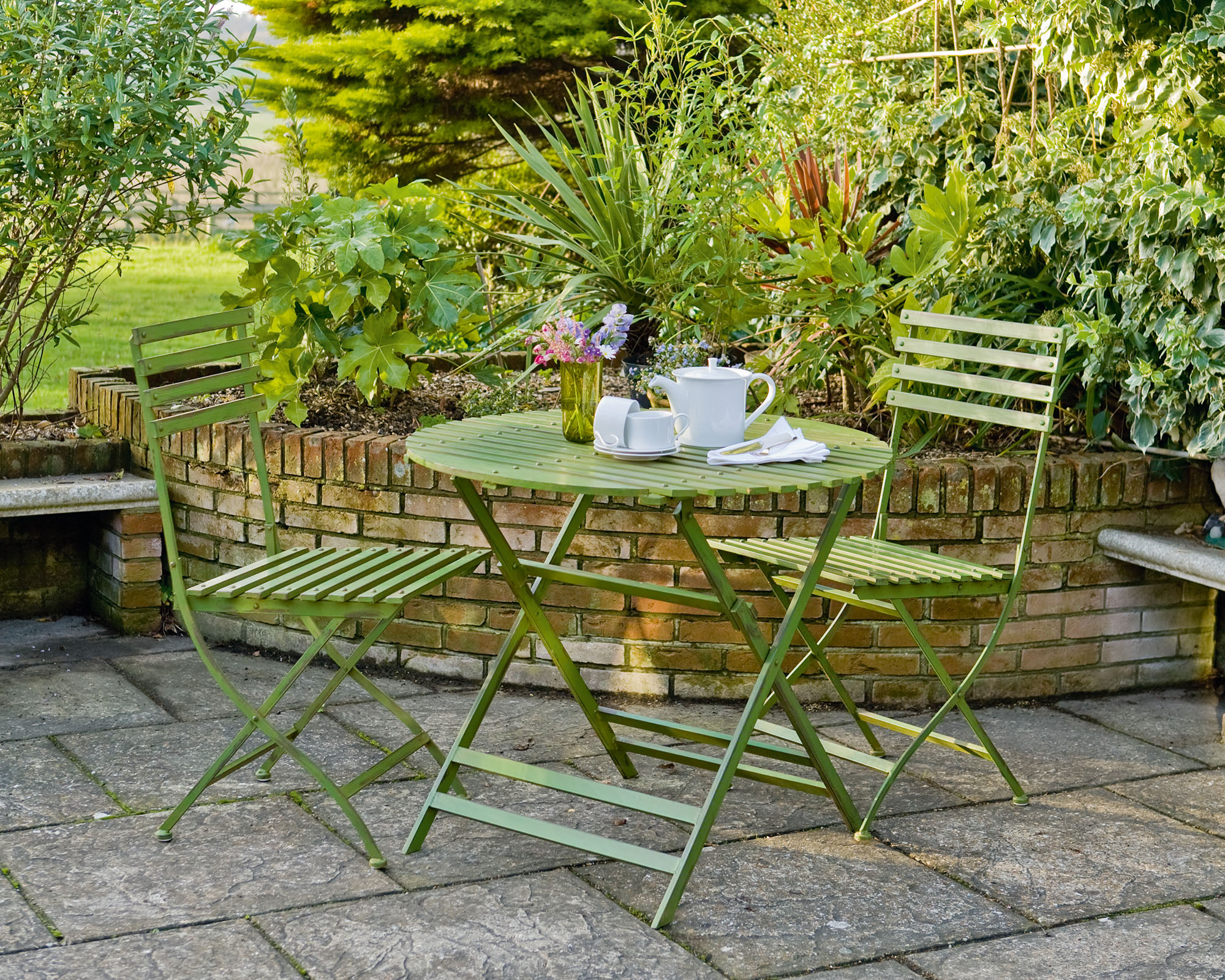
We often think of raised beds as being rectangular, but they can be any shape you want. Indeed, a curved design is a clever way to soften hard edges and corners, and can feel less imposing in a small space.
Brick is the best material to use when building curvy shapes, and makes it feel a more permanent part of the landscaping design. However, a woven raised bed is also suitable.
14. Integrate A Calming Water Feature
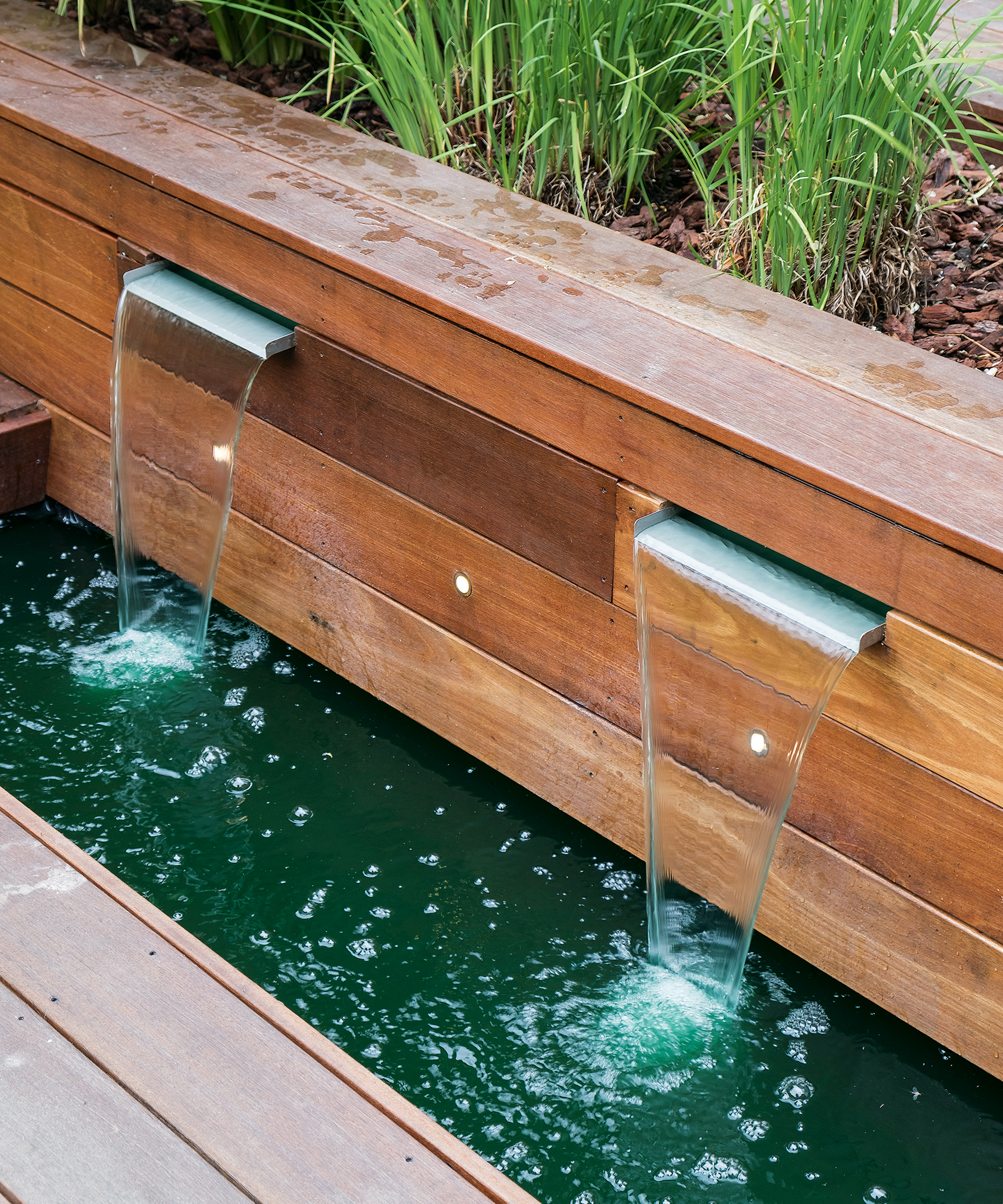
Consider incorporating a water feature into your raised bed design. Here, the deck has been built to include raised beds adjoining a mini waterfall.
The walls of the raised bed have been used to cleverly conceal the pump and mechanisms for the water feature.
To keep it looking its best, the wood is oiled twice a year.
15. Get The Country Look With Woven Beds
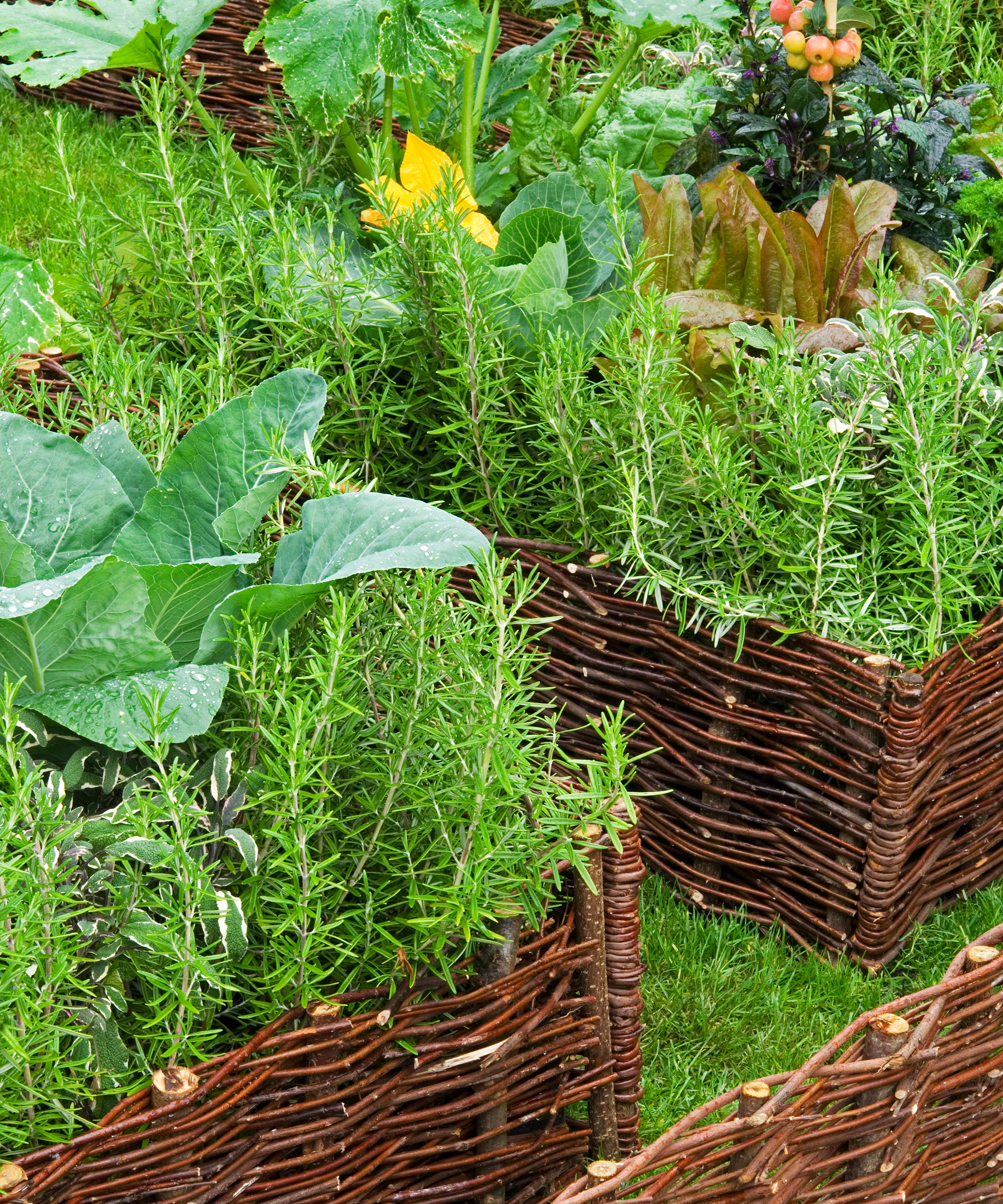
Woven willow or hazel raised beds blend in perfectly with the country garden aesthetic. They soften the look of the beds and are made from sustainable materials.
Usually sold in kits, woven raised beds can be made by crafty gardeners using locally collected flexible rods, with hurdles used to weave around.
Due to the open structure of woven raised beds, they will require plastic lining before filling with soil.
16. Brighten Up Garden Beds With Paint
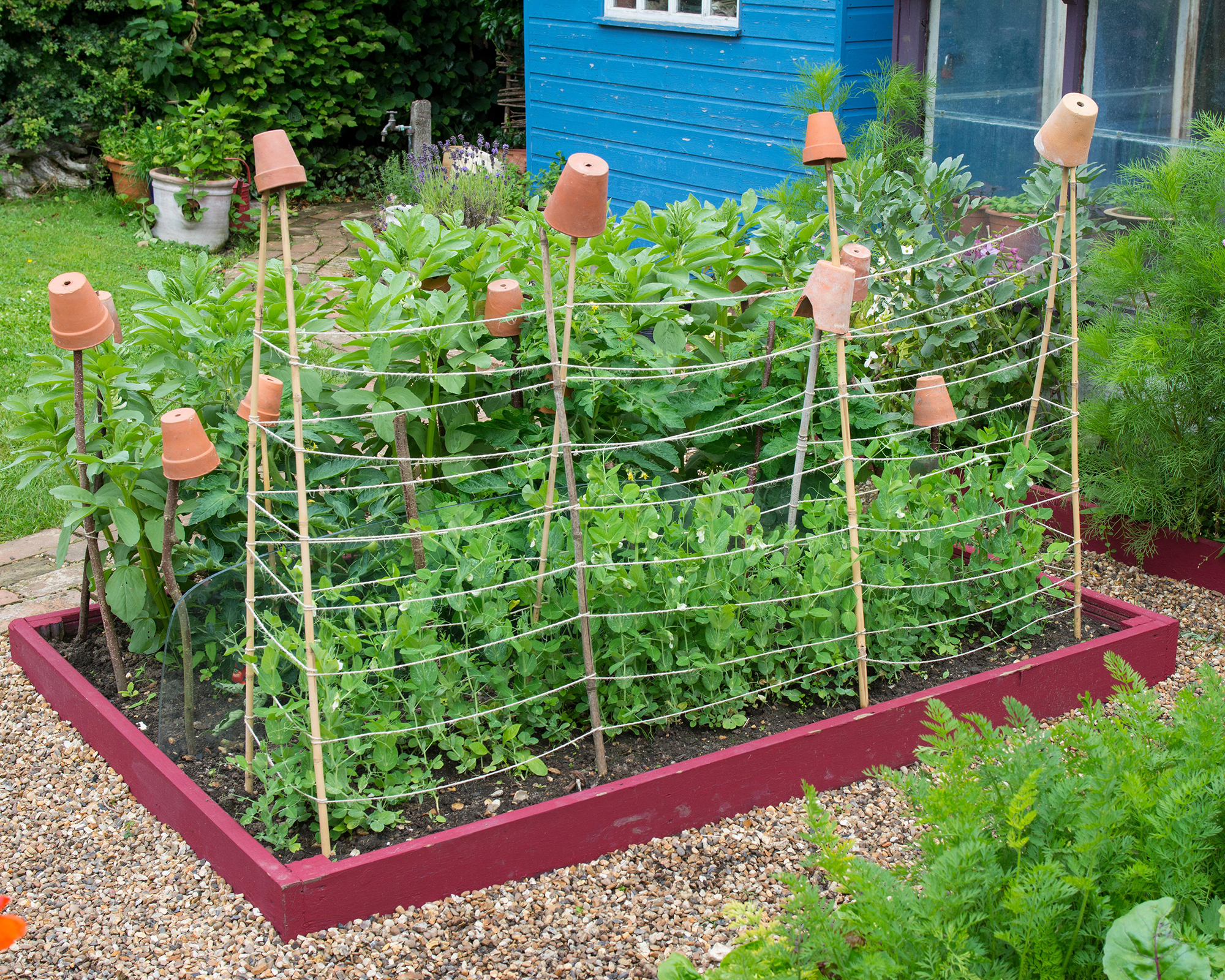
One of the easiest ways to create unique raised garden beds is to buy a standard kit, and then paint the wood a lovely color before installing.
Painted raised beds must use non-toxic modern paint so that chemicals do not leach into the soil. This means you should avoid using old painted wood that you have reclaimed from other items.
Painting the wood can also help to extend the lifespan of the raised beds.

Amy Grant has been gardening for 30 years and writing for 15. A professional chef and caterer, Amy's area of expertise is culinary gardening.
- Caroline BloomfieldManager of Marketing Communications
- Amy DraissDigital Community Manager

